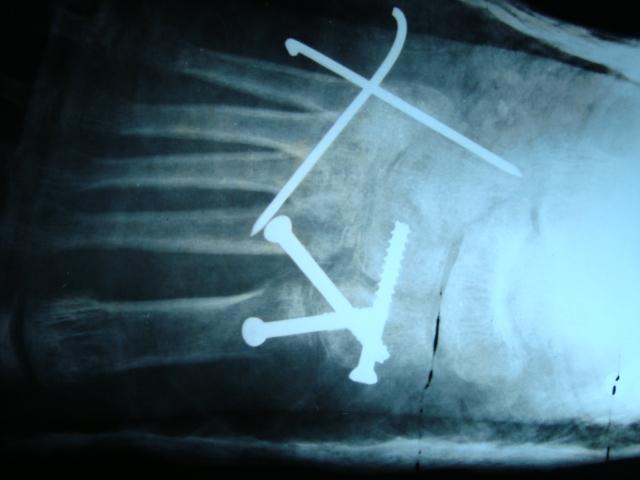Editorial
Case Report | Volume 9 | Issue 5 | JOCR September – October 2019 | Page 1-2 | Shyam A. DOI: 10.13107/jocr.2250-0685.1504
Reluctance to Cite our Peers in articles: Story of Academic Betrayals
Authors: Ashok Shyam [1,2]
[1]Indian Orthopaedic Research Group, Thane, India.
[2]Sancheti Institute for Orthopaedics and Rehabilitation, Pune, India.
Address of Correspondence
Dr. Ashok Shyam,
Department of Orthopaedic, Sancheti Institute for Orthopaedics and Rehabilitation, Pune, India.
Email: drashokshyam@gmail.com
This is something of a personal experience and an experience shared by few of senior colleagues where due credit was not cited in a research paper by peer working in same professional or academic circle. It sounds quite counterintuitive where the practice of guest citations is quite common, but it does exist and is been spoken in under currents in view of academic competition.
I will start with my own example, where few years back one of my residents was presenting a paper in a conference. At then end of the presentation, a colleague from the audience stood up and indicated that he has done work on similar lines and have published it too and that the presentation failed to cite it. Later I came to know that the said reference was included in the paper submission we had made, and due credit was given, however due to time constraints for free paper presentation, the resident had omitted the citations. This was an oversight at my end, and we apologised to the said colleague too. This was my first encounter with this particular theory and although it was not intentional, I could understand how an author will feel if his relevant papers are not cited by peers.
Later, while in conversation with seniors, this topic would often come up, where a senior would claim that he has been presenting a technique or a theory for many years and has has recently seen a paper publication from another part of the country. He knew that the authors borrowed the concept from his work but have failed to cite him even as personal communication. Although they could not officially have any claims since they did not publish it any peer reviewed journal, but they did freely share the knowledge with peers and to them this non citation did feel quite unfair. A feeling similar to an ‘academic betrayal’ lingered in their minds. Ethically too this goes against the second clause of the modern rendition of Hippocratic oath which states that ‘I will respect the hard-won scientific gains of those physicians in whose steps I walk’ [1].
An interesting fact about these incidences was that in almost all these incidences the aggrieved surgeon had never contacted the authors or the journal to put up their viewpoint. I believe letter to editor offers such a forum and can be used for this purpose. At times even published articles from the country were ignored by the peers of same country who preferred citing a foreign article for a concept when a perfectly suitable article was available from a similar academic circle. Again, this was not unheard of, but it was very rarely, if ever reported or objected by the original authors.
Once this concept was formed, I wondered what was the reason for such non-citations. One of the foremost reasons that came to mind was professional competition or may be academic ‘jealousy’ [although I believe jealousy is too strong a word here]. However, this would require a conscious effort to ignore a relevant publication and would certainly be difficult for a true researcher. Research is always based on thorough review and interpretation of literature and if an article is relevant, it is very difficult to be overlooked. Also, to add to this view the original authors also may erroneously feel betrayed for non-citation, when the case was that a more relevant or recent article was found and cited. This laid in a grey area that was open to interpretation, especially with the limitation of word count and reference count by some journals. Second reason would be sheer ignorance of existence of a prior paper due to incomplete peer review. This is an avoidable cause and thorough review of literature would help with this. One reason that came to light was experience of publishing after listening to one of the talks in a conference. We realised that we are using the same technique for even longer than what the conference paper claimed, but again we had not published or presented it. So while publishing the paper, the dilemma was should we cite the said conference presentation or should we not. There is not right answer to this dilemma and collectively all authors decided not to cite the conference presentation. However, as a follow up study, we did send a proposal to the said presenter for a collaborative project on the same lines. I believe a collaborative project of such nature would not only resolve the bitterness but also make a stronger case for the study or technique in question. May be a silver lining in this whole issue.
The point of this editorial is simply to bring to everyone’s notice that these non-citations do happen and leave a bitter taste with the original authors. We should be aware about this, do a thorough literature review and give citation wherever due. I would suggest erring on the side of citing more articles rather than removing articles which are felt less relevant. For conference presentation a personal communication citation can be given if the abstracts are not published. Also, suggestion to the authors who felt that they were not cited, would be to either write to the authors or the editors of the journal about the same. Most of the time it would not be an intentional error and it will surely help forge new bonds and may lead to collaborative projects.
Regards,
Dr. Ashok Shyam
References:
1. Hajar R. The Physician’s Oath: Historical Perspectives. Heart Views. 2017 Oct-Dec;18(4):154-159.
| How to Cite This Article: Shyam A. Reluctance to Cite our Peers in articles: Story of Academic Betrayals. Journal of Orthopaedic Case Reports 2019 Sep-Oct; 9(5): 1-2 |
|
|
| Dr. Ashok Shyam |
[Full Text HTML] [Full Text PDF] [XML]
[rate_this_page]
Dear Reader, We are very excited about New Features in JOCR. Please do let us know what you think by Clicking on the Sliding “Feedback Form” button on the <<< left of the page or sending a mail to us at editor.jocr@gmail.com





